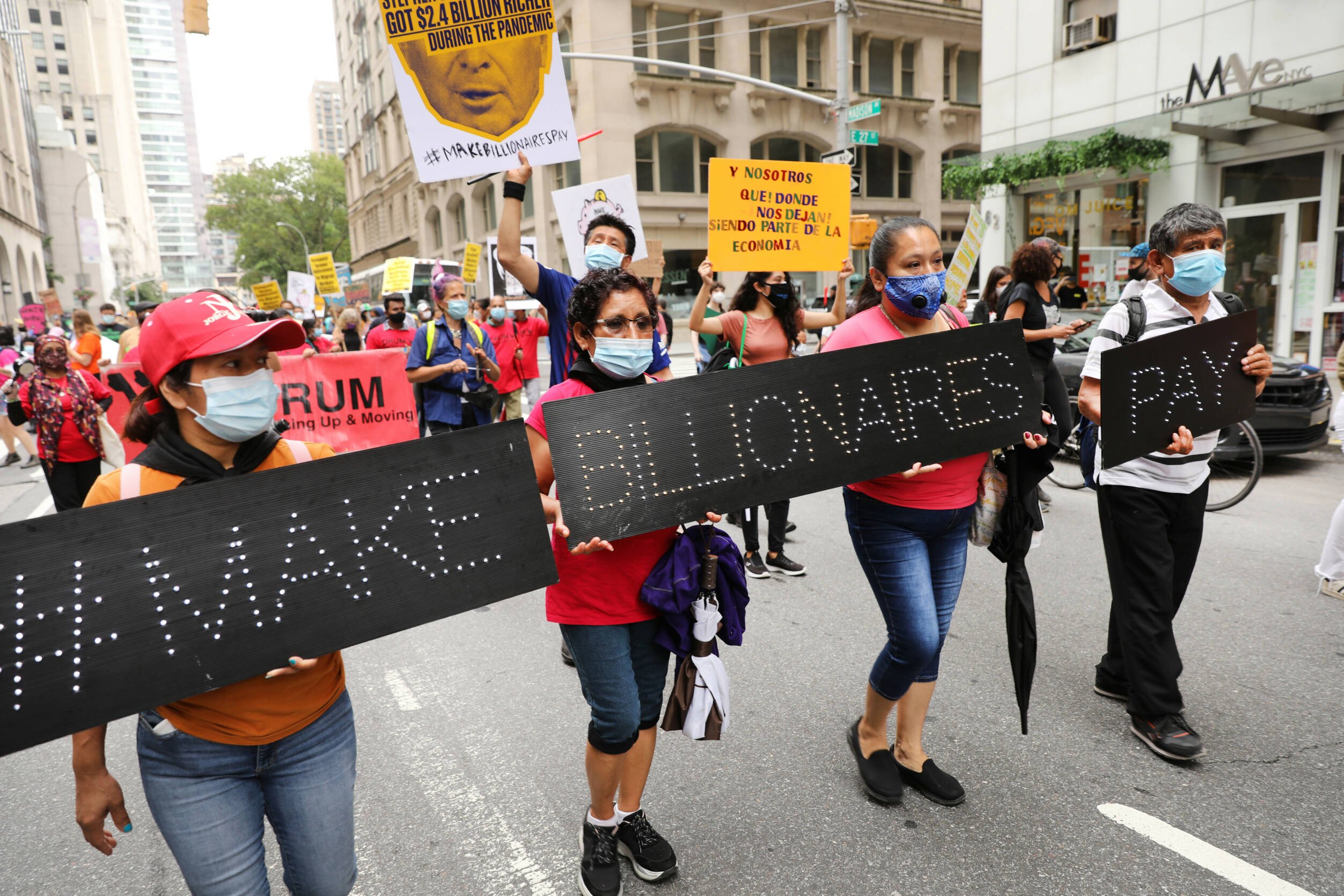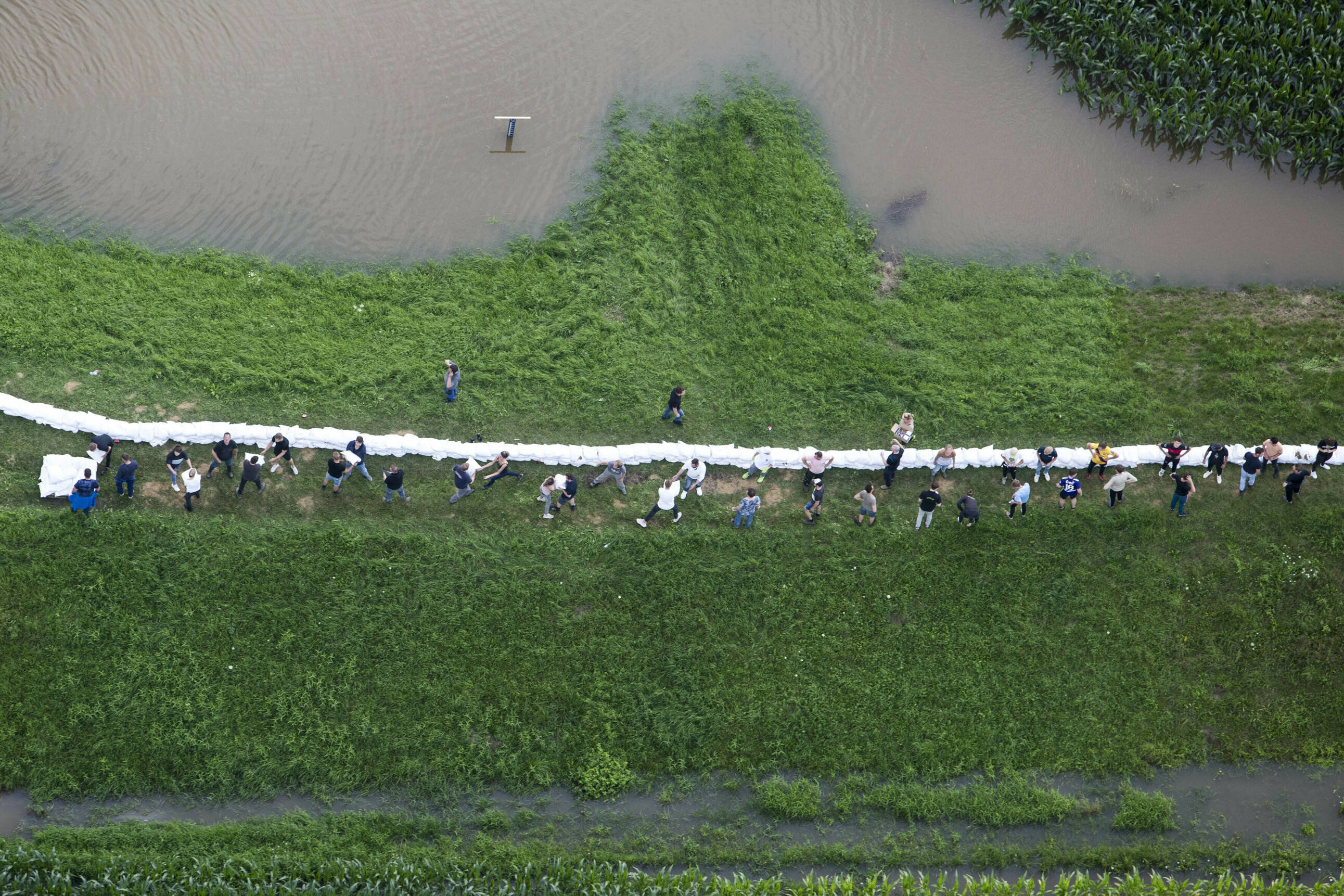Image: Getty Images (Cris Toala Olivares / Stringer)
Rising inequality will hamper societal resilience in the face of global challenges in the coming years. The Covid-19 pandemic and the uneven recovery from it laid bare many divisions and vulnerabilities in societies, and tested the resilience of what binds people together and to the state. In a disrupted world facing myriad pressures, rapid changes and uncertainties, there are legitimate questions about how resilient our societies are to the future and to compounding challenges often rooted in poor governance.
The question of societal resilience is likely to become an ever more urgent dimension of politics, security and stability. The risks we forecast throughout this Strategic Outlook all carry immense and complex implications at the most basic human and societal level, and often are made worse by governments failing to find sustainable solutions. From the accelerating effects of climate change and the rapid rise of generative artificial intelligence (Gen AI), to geopolitical crises and economic uncertainty, a growing number of people face change, displacement and inequalities.
Resilience is dependent on our ability to bounce back from adversity and move forward. But this process is often utilitarian in nature and so while society appears to move on, many are left behind. For example, the Covid-19 pandemic is over for most people. Yet academic estimates suggest more than 200m individuals globally will suffer from Long Covid symptoms that inhibit their lives, including their ability to work productively, if at all.
It is not just the public health impacts of Covid-19 that persist. The economic recovery has been uneven. Rising food and energy prices globally continue to force more people to make tough decisions. Many Western governments attribute this to Russia’s war in Ukraine, but there are many other factors and there are few prospects these will improve in 2024. Even more households will be faced with decisions on how to spend – for example choosing between food or warmth.
Image: Getty Images (Spencer Platt / Staff)
Image: Getty Images (Spencer Platt / Staff)
Short term decisions will continue to exacerbate inequalities by worsening food security, damaging public health, and pushing up poverty and displacement.
When it comes to climate change, political leaders are still prioritising the present at the cost of future resilience. This is often to the bemusement of the societies they govern. Short-term decisions will continue to exacerbate inequalities by worsening food security, damaging public health, and pushing up poverty and displacement. Climate change will lead to internal and external migration from areas made uninhabitable, either through rising water levels or temperatures. But despite decades of warnings on these issues, the UN in 2023 still pointed to lack of funding (developing countries will need more than $300 billion per year by 2030) and political will as key barriers. We are heading towards a foreseeable future that we are inadequately prepared to weather.
A more uncertain challenge is the rise of AI. The increased availability of AI-powered tools and applications has the ability to change society forever by improving productivity and lifting the burden of menial tasks off humans, particularly in more developed economies. Despite the opportunities, anxiety over AI and what it means for employment is growing. A Pew Research Center poll in August 2023, for example, showed that 52% of Americans are ‘more concerned than excited’ by the use of AI.
Such concerns are probably well founded. The World Economic Forum said in 2023 that technological advancements will lead to job losses and require six out ten workers to retrain before 2027. But only half of workers are seen to have access to adequate training opportunities today. The rise in unemployment and the absence of opportunity will almost certainly contribute to already-widening inequality. The pace of change threatens to be faster than the rate at which our societies appear geared to adapt.
Humans as a species are remarkably adaptable and resourceful in the face of challenges. But successive profound disruptions to our habitat and way of life will invariably mean continuous and often destabilising changes. The question for forecasters is how effective governments and global organisations will be in building resilience to mitigate emerging risks, even in the near term. In such a fractious geopolitical landscape this will require societies to choose their leaders wisely, as much as they are free to.




